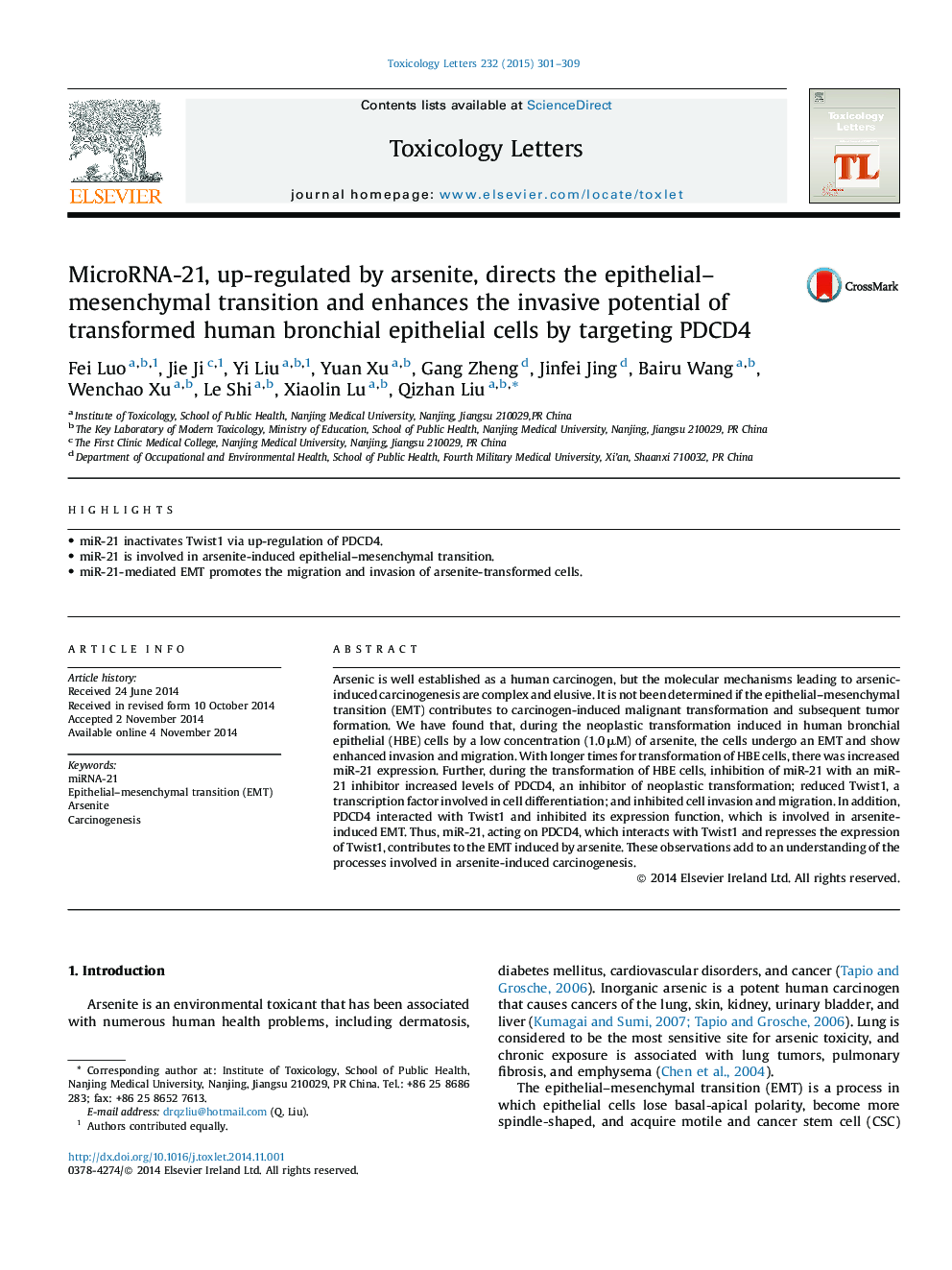| Article ID | Journal | Published Year | Pages | File Type |
|---|---|---|---|---|
| 5860082 | Toxicology Letters | 2015 | 9 Pages |
â¢miR-21 inactivates Twist1 via up-regulation of PDCD4.â¢miR-21 is involved in arsenite-induced epithelial-mesenchymal transition.â¢miR-21-mediated EMT promotes the migration and invasion of arsenite-transformed cells.
Arsenic is well established as a human carcinogen, but the molecular mechanisms leading to arsenic-induced carcinogenesis are complex and elusive. It is not been determined if the epithelial-mesenchymal transition (EMT) contributes to carcinogen-induced malignant transformation and subsequent tumor formation. We have found that, during the neoplastic transformation induced in human bronchial epithelial (HBE) cells by a low concentration (1.0 μM) of arsenite, the cells undergo an EMT and show enhanced invasion and migration. With longer times for transformation of HBE cells, there was increased miR-21 expression. Further, during the transformation of HBE cells, inhibition of miR-21 with an miR-21 inhibitor increased levels of PDCD4, an inhibitor of neoplastic transformation; reduced Twist1, a transcription factor involved in cell differentiation; and inhibited cell invasion and migration. In addition, PDCD4 interacted with Twist1 and inhibited its expression function, which is involved in arsenite-induced EMT. Thus, miR-21, acting on PDCD4, which interacts with Twist1 and represses the expression of Twist1, contributes to the EMT induced by arsenite. These observations add to an understanding of the processes involved in arsenite-induced carcinogenesis.
